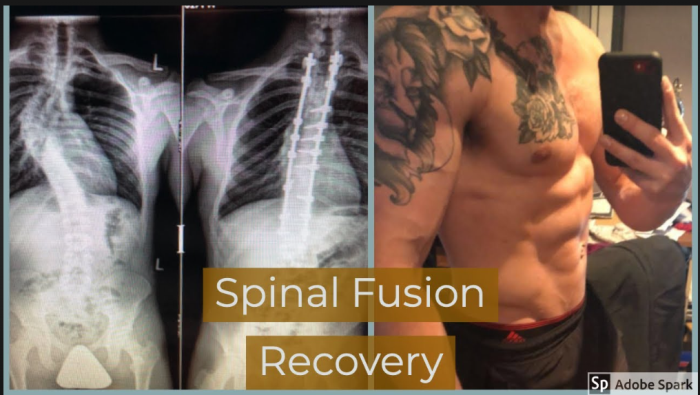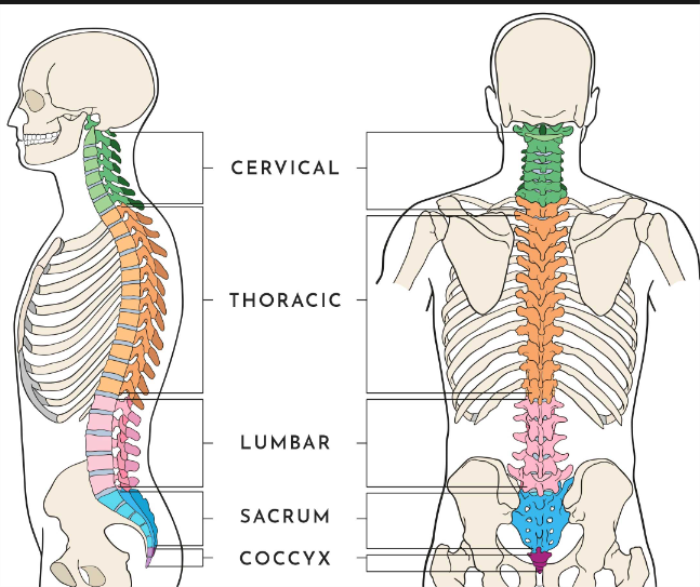Spinal fusion surgery is a significant procedure that may be necessary for individuals suffering from debilitating spinal conditions. It involves connecting two or more vertebrae to stabilize the spine, alleviate pain, and restore function. Deciding when to consider spinal fusion can be challenging, as it requires careful evaluation of symptoms, overall health, and treatment history. This blog will explore the critical indicators that suggest spinal fusion may be the best option for effective relief and improved quality of life.
Understanding Spinal Fusion Surgery: A Comprehensive Overview
Spinal fusion surgery is a surgical technique designed to join two or more vertebrae together, creating a single, solid bone. This procedure is primarily used to treat conditions like spinal instability, herniated discs, and spondylolisthesis. By stabilizing the spine, patients can experience reduced pain, improved mobility, and enhanced quality of life. Understanding the fundamentals of spinal fusion is crucial in determining if this surgery is the right choice for you.

The Anatomy of the Spine: Why Fusion May Be Necessary
The spine consists of individual vertebrae that allow for flexibility and movement. However, various conditions can compromise the integrity of these structures, leading to chronic pain and dysfunction. Spinal fusion surgery may become necessary when conservative treatments fail to provide relief, as it helps restore spinal stability by eliminating motion between vertebrae. Recognizing the underlying anatomy can aid in understanding why fusion is sometimes required.

Common Conditions Requiring Spinal Fusion
Several medical conditions can necessitate spinal fusion surgery, including degenerative disc disease, spinal stenosis, and severe fractures. These conditions can lead to significant pain and impaired function, prompting the need for surgical intervention. If conservative treatment options like medication or physical therapy do not alleviate symptoms, spinal fusion might be the best course of action.
Signs and Symptoms Indicating the Need for Surgery
Recognizing the signs and symptoms that indicate the necessity of spinal fusion is vital. Persistent back pain, radiating pain in the legs, numbness, or weakness can signal that conservative measures are insufficient. If these symptoms severely affect daily activities and quality of life, it may be time to consider spinal fusion surgery as a solution.
Evaluating Your Pain: When is it Time for Spinal Fusion?
Evaluating the severity and duration of your pain is essential in deciding when to consider spinal fusion surgery. If you experience chronic pain that persists despite treatment, or if your condition worsens over time, it may indicate that surgical intervention is necessary. A comprehensive assessment of your pain levels will help determine if spinal fusion is the right option for you.
Non-Surgical Alternatives: Exhausting All Options Before Surgery
Before considering spinal fusion, it’s important to explore all non-surgical alternatives. Treatments such as physical therapy, medications, and epidural injections can often provide significant relief for many individuals. Only when these methods fail to alleviate symptoms should you seriously contemplate surgical intervention. Understanding the full spectrum of options is essential in making an informed decision.
Consulting a Specialist: The Importance of Professional Guidance
Consulting a spine specialist is crucial when contemplating spinal fusion surgery. These experts can provide a thorough evaluation, recommend diagnostic tests, and discuss potential treatment options tailored to your specific condition. Professional guidance ensures that you make an informed decision based on your health needs and medical history.

Imaging and Diagnostics: How They Influence the Decision
Advanced imaging techniques such as MRI and CT scans play a critical role in diagnosing spinal conditions and determining the need for spinal fusion surgery. These diagnostic tools provide detailed images of the spine, allowing specialists to assess the severity of the condition and formulate an appropriate treatment plan. Understanding the diagnostic process can help clarify when surgery might be necessary.
Understanding Your Diagnosis: Herniated Discs and Spinal Stenosis
Conditions like herniated discs and spinal stenosis are common causes for considering spinal fusion surgery. A herniated disc occurs when the soft inner material of the disc bulges out, pressing on nerves and causing pain. Similarly, spinal stenosis involves the narrowing of the spinal canal, which can lead to nerve compression. Understanding these diagnoses is vital for recognizing when surgical intervention is necessary.
The Role of Physical Therapy in Pre-Surgery Assessment
Physical therapy often plays a crucial role in the pre-surgery assessment process for spinal fusion. By improving strength and flexibility, physical therapy can help evaluate whether surgery is necessary. Additionally, it can help prepare the body for surgery and potentially enhance recovery post-operation. Discussing physical therapy options with your doctor can provide valuable insights into your surgical decision.
When to Seek a Second Opinion on Spinal Surgery
If you're unsure about the recommendation for spinal fusion surgery, seeking a second opinion can provide clarity. Different specialists may offer varying perspectives on your condition and treatment options, helping you feel more confident in your decision. It’s essential to have all the information before proceeding with such a significant surgical intervention.
Top Symptoms That Indicate You May Need Spinal Fusion Surgery - Key Warning Signs
Key symptoms that may indicate the need for spinal fusion surgery include chronic back pain, numbness, tingling in the legs, difficulty walking, and reduced mobility. If you experience worsening pain or loss of function despite physical therapy or medications, it may be time to consider surgical intervention to stabilize your spine and alleviate symptoms.
Spinal Fusion Recovery: Timeline, Exercises, Tips & Full Guide
Spinal fusion recovery typically takes several months, with the initial weeks focused on managing pain and regaining mobility. Physical therapy plays a crucial role in strengthening the spine, improving flexibility, and speeding up recovery. Following a structured exercise plan and tips from healthcare professionals will ensure a smooth and successful recovery after spinal fusion surgery.
Age Considerations: Who is a Suitable Candidate for Fusion?
Age can play a significant role in determining candidacy for spinal fusion surgery. While older adults may be at higher risk for complications, they can also benefit from the surgery due to chronic conditions. Conversely, younger patients might require more conservative treatment options. Assessing age-related factors is vital in making an informed decision about spinal fusion.
Assessing Your Overall Health: A Crucial Step in Decision-Making
Your overall health significantly influences your eligibility for spinal fusion surgery. Factors such as pre-existing medical conditions, lifestyle choices, and general fitness can impact surgical outcomes. A comprehensive evaluation of your health status is essential to ensure the best possible results from surgery.
Best Spinal Fusion Surgery in India
The Best Spinal Fusion Surgery in India is characterized by advanced techniques, state-of-the-art technology, and experienced surgeons. Many patients choose India for its high success rates and the availability of minimally invasive procedures, which significantly reduce recovery times and hospital stays.
Spinal Fusion Surgery Cost in India
The Spinal Fusion Surgery Cost in India is significantly lower compared to Western countries, making it an attractive option for patients seeking affordable healthcare without compromising quality. The cost typically ranges from INR 1 lakh to INR 5 lakhs, depending on various factors such as hospital type, surgeon expertise, and individual patient needs.
Best Hospitals for Spinal Fusion Surgery in India
Some of the Best Hospitals for Spinal Fusion Surgery in India include renowned institutions like Apollo Hospitals, Fortis Healthcare, and AIIMS, which are equipped with modern facilities and skilled medical professionals. These hospitals have dedicated orthopedic departments specializing in spinal surgeries, ensuring patients receive top-notch care.
Best Doctors for Spinal Fusion Surgery in India
The Best Doctors for Spinal Fusion Surgery in India are highly qualified orthopedic surgeons with extensive experience in spinal procedures. Many of these specialists have trained internationally and are affiliated with leading hospitals, ensuring patients receive expert care tailored to their unique conditions.
Lifestyle Factors: How They Impact Your Surgery Decision
Lifestyle choices, including diet, exercise, and smoking, can significantly affect the need for spinal fusion surgery. Maintaining a healthy lifestyle can potentially delay the need for surgery by improving spinal health and function. Understanding how these factors influence your spinal condition can help you make informed decisions about surgical intervention.
The Psychological Aspect: Coping with Chronic Pain
Living with chronic pain can take a toll on mental health, making it essential to address the psychological aspects when considering spinal fusion surgery. Support from mental health professionals can aid in coping strategies and preparation for surgery. Recognizing the emotional impact of chronic pain is crucial in the decision-making process.
Understanding the Risks and Benefits of Spinal Fusion
Before deciding on spinal fusion surgery, it’s crucial to understand both the risks and benefits. While the procedure can significantly reduce pain and improve mobility, there are potential complications such as infection or non-union of the bones. A thorough discussion with your healthcare provider about these aspects will ensure you make an informed choice.
When Conservative Treatment Fails: Recognizing the Signs
Knowing when conservative treatments have failed is vital in deciding to pursue spinal fusion surgery. If you find that pain management, physical therapy, or lifestyle changes are no longer effective, it may signal the need for surgical intervention. Monitoring your symptoms and recognizing when they persist can help guide this important decision.
Long-Term Effects of Chronic Spinal Conditions
Chronic spinal conditions can lead to significant long-termeffects, including worsening pain, decreased mobility, and potential disability. Understanding these long-term implications is crucial when considering spinal fusion surgery. If left untreated, chronic conditions can severely impact your quality of life, making surgical intervention a necessary consideration for regaining functionality and alleviating pain.
Cost Factors: Financial Considerations for Spinal Fusion
The cost of spinal fusion surgery can vary significantly based on factors such as the hospital, surgeon, and specific procedure involved. Understanding these financial implications is essential for patients considering surgery. Insurance coverage may also play a role in determining out-of-pocket expenses. It's crucial to discuss potential costs with your healthcare provider and insurance company to ensure you are financially prepared.
Choosing the Right Surgeon: What to Look For
Selecting the right surgeon for spinal fusion surgery is critical to achieving a successful outcome. Factors to consider include the surgeon's experience, patient reviews, and hospital affiliation. Researching and consulting with multiple specialists can help ensure you choose a qualified and trusted professional to perform your surgery.
Insurance Coverage: Understanding Your Benefits for Spinal Fusion
Understanding your insurance coverage for spinal fusion surgery is vital in the decision-making process. Different plans may have varying levels of coverage, requirements for prior authorizations, and co-pays. It's essential to review your insurance policy and consult with your provider to clarify what costs will be covered before proceeding with surgery.
Future Outlook: The Evolving Techniques in Spinal Surgery
As medical technology advances, the techniques used in spinal fusion surgery are continually evolving. Minimally invasive options are becoming more prevalent, resulting in shorter recovery times and fewer complications. Staying informed about these advancements can help patients make educated decisions about their surgical options.
Questions to Ask Your Surgeon Before Deciding on Fusion
Before committing to spinal fusion surgery, patients should prepare a list of questions for their surgeon. Inquiries might include the expected outcomes, risks, recovery timeline, and alternative treatments. Open communication with your healthcare provider is essential for ensuring all concerns are addressed, enabling you to make the best decision.
Conclusion: Making an Informed Decision About Spinal Fusion Surgery
In conclusion, deciding whether to proceed with spinal fusion surgery is a significant decision that requires careful consideration of various factors, including symptoms, overall health, and treatment history. Understanding the complexities involved, along with the potential benefits and risks, will help you make an informed choice that prioritizes your health and quality of life.
Frequently Asked Questions (FAQs)
What is spinal fusion surgery?
Spinal fusion surgery is a procedure that joins two or more vertebrae to stabilize the spine and alleviate pain caused by conditions like degenerative disc disease or spinal stenosis.
How do I know if I need spinal fusion surgery?
If you experience persistent back pain, numbness, or weakness that does not improve with conservative treatments, it may be time to consult a specialist about the possibility of spinal fusion.
What conditions commonly require spinal fusion?
Common conditions that may necessitate spinal fusion include herniated discs, spondylolisthesis, and spinal fractures.
What are the risks associated with spinal fusion surgery?
Risks include infection, nerve damage, blood clots, and failure of the bones to fuse together. Discussing these risks with your surgeon is essential.
How long does recovery from spinal fusion surgery take?
Recovery times vary, but many patients can expect to return to light activities within 6 to 12 weeks, while full recovery may take several months.
Will I need physical therapy after spinal fusion?
Yes, physical therapy is often an integral part of the recovery process to help restore strength and mobility after spinal fusion surgery.
Can I drive after spinal fusion surgery?
Driving is typically not recommended until you can comfortably move and respond without pain, usually within a few weeks post-surgery. Always consult your surgeon for personalized guidance.
How can I prepare for spinal fusion surgery?
Preparing may involve pre-surgery assessments, following a healthy diet, arranging for post-operative help, and discussing medication needs with your doctor.
What lifestyle changes should I make after spinal fusion surgery?
It's important to maintain a healthy lifestyle, including proper nutrition, regular exercise (as advised), and avoiding activities that strain the back.
Is spinal fusion surgery always successful?
While many patients experience significant pain relief and improved quality of life post-surgery, success rates can vary depending on the individual’s condition and overall health.